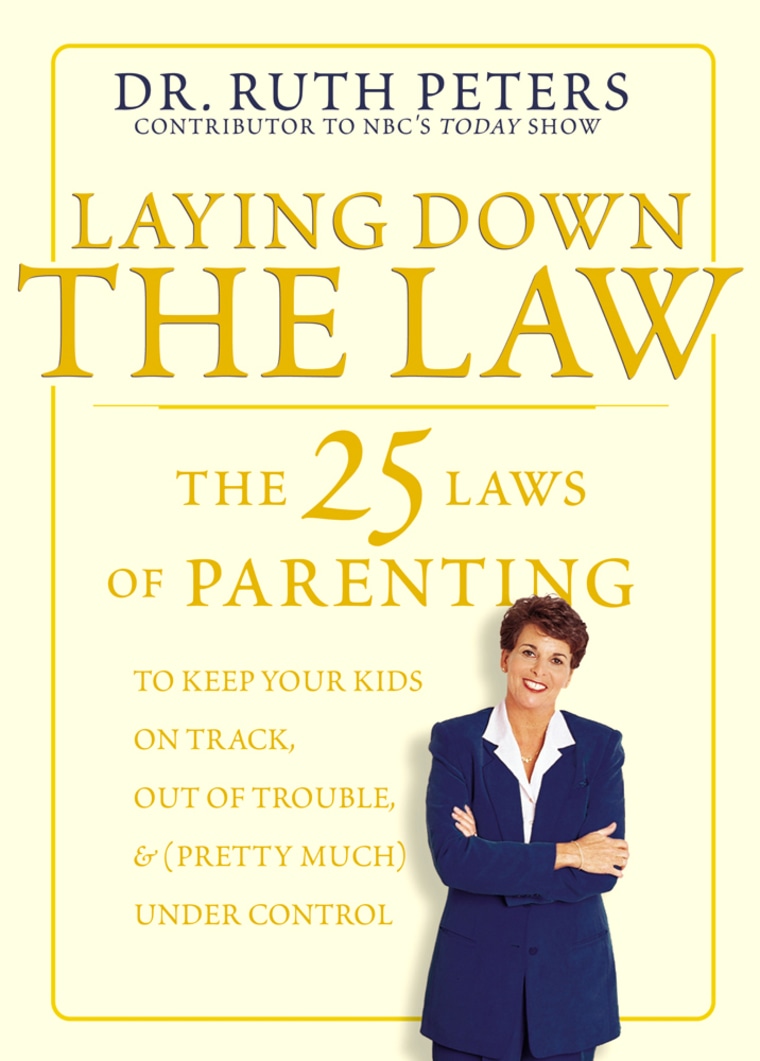Q:Our high school son’s friends seem to be overwhelmingly female.
We think he's still too young to be spending so much time with the young ladies. In his young teen years we would prefer him to be playing ball with guys his age.
Is there anything unusual about this?
A: The response depends upon how your child fits in with other kids his age, especially at school.
Many teenage boys that I’ve worked with maintain “special friendships” with girls, mainly because they feel that females tend to be better listeners than guys. Your son may be more comfortable talking on the phone with girls as well as engaging in social activities, rather than playing ball or hanging out with guys his age.
There's nothing wrong with this, especially if the young ladies are appropriate, good and loyal friends. The question, though, is one of balance. If your child focuses his friendships totally upon females because he feels that he cannot make and keep friendships with guys, there may be a problem.
Perhaps he is not athletic and feels self-conscious hanging around with boys. Or, an embarrassing event earlier in life may have shaken his self-confidence and he fears that he will be rejected if he tries to socialize with them. In my experience, I find that most teens realize that a mix of both male and female friends works best and they tend to move within mixed groups of boys and girls.
Try talking with your son in order to understand his motivation as to why his friends all seem to be girls. If he is lacking in self-confidence when dealing with guys, help him to understand the basis of this problem and to put it in proper perspective. If he was teased years ago for lack of athletic ability, that may not be as important now as a teenager. In addition, he may have developed a new interest or skill that would now enhance his importance in a group of guys but he hasn't yet realized that he can use this new skill to develop male friendships.
Another type of situation in which I see boys maintaining most friendships with girls is, of course, that they are very attracted to the opposite sex. Although having a girlfriend as a teenager can be exciting and a ticket to popularity, your son needs to learn how to set limits upon this behavior. Not only am I suggesting setting sexual limits, but also acknowledging that having a girlfriend tends to be a distracting, time-consuming affair which can take precedence over completing chores and studying.
Balance, again, is key — he needs to learn that other things in life are of equal importance as having a bunch of girls to hang around with. In addition, he may find that guys cease to be friends with him if he focuses most of his time on the ladies. When his relationships break up, your son’s guy friends may not be there to buoy his spirits or to help him recover from his lost love. It may be a good idea to bring these issues to his attention now so he can begin to regain some balance in his life.
A third reason why some teenage boys tend to surround themselves with girls as friends is that they are questioning their sexual identity. Be cautious about jumping to this conclusion, as your child may be comfortable with a heterosexual lifestyle. However, some teen boys find that they are much more comfortable with girls their age — they may be able to relate better conversationally, and they are not distracted or threatened by sexual feelings if their friends were boys. If this is the case, I hope that your son can begin to discuss his sexual identity conflicts with you, and I do hope that you are supportive of his feelings. He may be convinced that he is gay, or perhaps confused due to feelings of attraction that he’s had toward members of the same sex. If he desires, counseling may help him to clarify his feelings, to see that he is accepted by his family regardless of sexual orientation and to be able to keep this aspect of his personality in balance with responsibilities found at home and at school.
Dr. Peters’ Bottom Line:If your son is like many teens, he may meet your concerns with eye-rolling, a heavy sigh and an attitude that suggests that you're just not in tune with today’s kids. By asking him questions, getting to know his friends and staying open to all possibilities, perhaps he’ll feel more comfortable in expressing his concerns or helping you to understand what it’s like walking in his shoes. Be patient, supportive and available so that he’ll begin to open up to you and perhaps heed some of your advice.

PLEASE NOTE: The information in this column should not be construed as providing specific psychological or medical advice, but rather to offer readers information to better understand the lives and health of themselves and their children. It is not intended to provide an alternative to professional treatment or to replace the services of a physician, psychiatrist or psychotherapist.